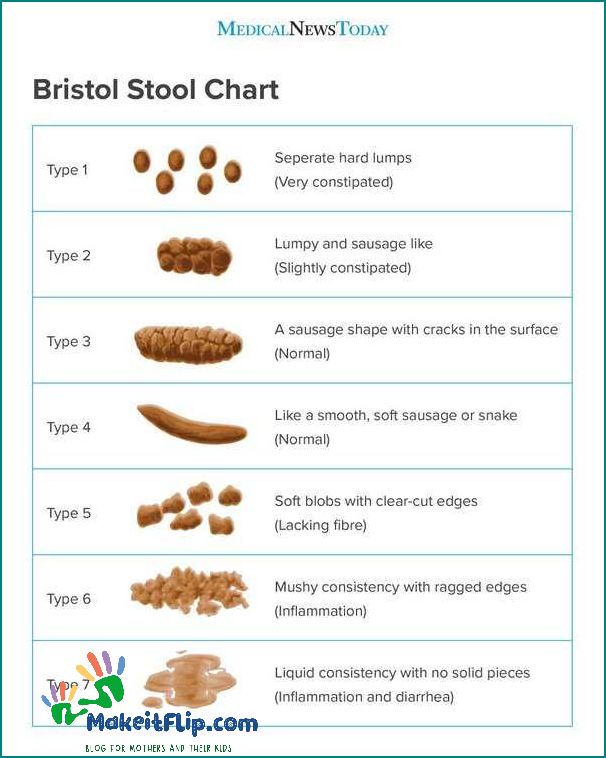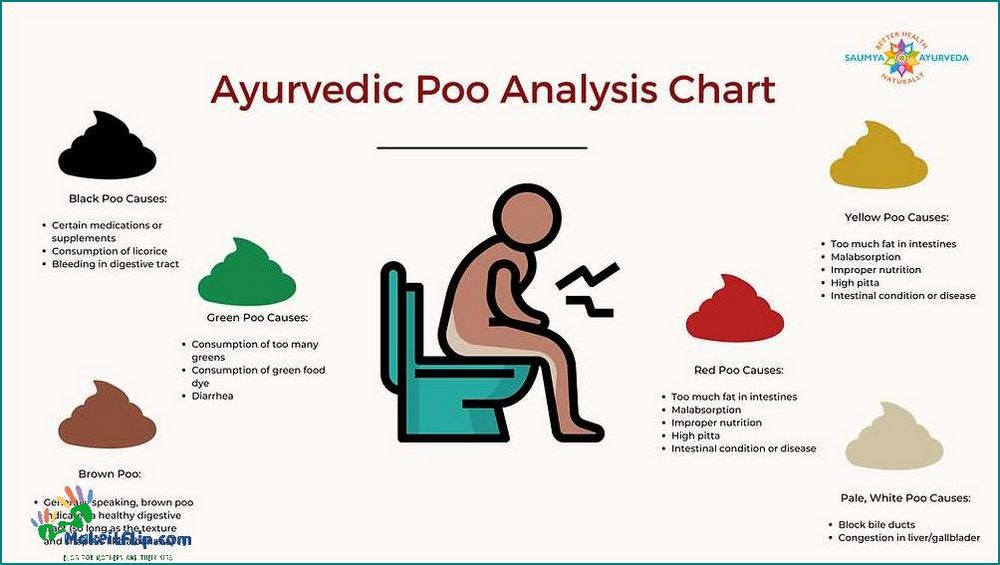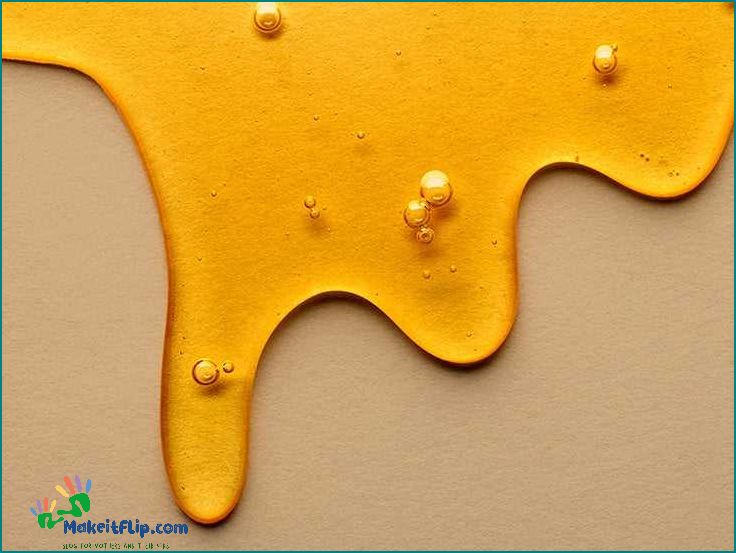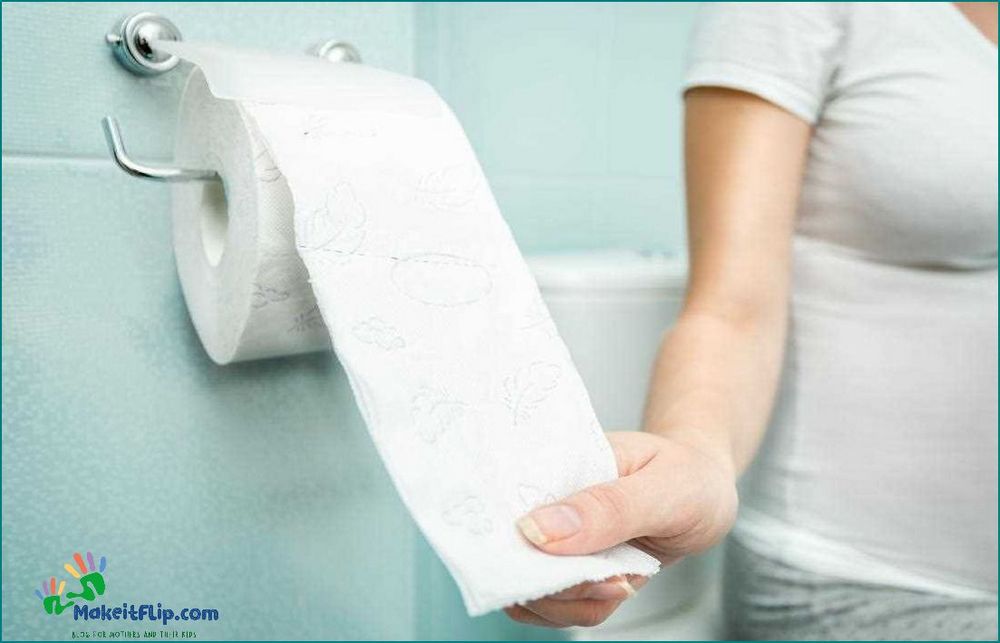Contents
Exploring the Causes, Symptoms, and Treatment of Sticky Stool: A Comprehensive Guide

Sticky poop, also known as sticky stool, is a common digestive issue that can be caused by various factors. It refers to a bowel movement that is difficult to pass and sticks to the toilet bowl or the rectal area. This condition can be uncomfortable and may indicate an underlying problem with digestion or gastrointestinal health.
The consistency of poop is influenced by several factors, including diet, hydration, and bowel movements. One of the main causes of sticky poop is a lack of fiber in the diet. Fiber plays a crucial role in promoting healthy digestion and preventing constipation. When there is a lack of fiber, the stool can become sticky and difficult to pass.
In addition to a lack of fiber, dehydration can also contribute to sticky poop. When the body is dehydrated, the stool can become harder and stickier, making it more difficult to pass. It is important to maintain proper hydration by drinking an adequate amount of water throughout the day.
There are several symptoms associated with sticky poop, including abdominal discomfort, bloating, and a feeling of incomplete bowel movement. If you consistently experience sticky poop, it is important to consult a healthcare professional for a proper diagnosis and treatment plan.
Treatment for sticky poop depends on the underlying cause. Increasing fiber intake through a diet rich in fruits, vegetables, and whole grains can help regulate bowel movements and prevent sticky poop. Drinking plenty of water and staying hydrated is also important. In some cases, a healthcare professional may recommend over-the-counter medications or prescribe medications to address specific digestive issues.
In conclusion, sticky poop can be a sign of an underlying issue with digestion or gastrointestinal health. It is important to address the causes and symptoms of sticky poop to promote healthy bowel movements and overall well-being.
Causes of Sticky Poop

Sticky poop, also known as sticky stool, can be caused by various gastrointestinal issues that affect the normal digestion and bowel movements. Some of the common causes of sticky poop include:
- Poor digestion: When the digestive system is not functioning properly, it can lead to sticky poop. This can be caused by a variety of factors such as a lack of digestive enzymes or an imbalance of gut bacteria.
- Constipation: When stool remains in the colon for too long, it can become dry and sticky. This can make it difficult to pass and result in sticky poop.
- Dehydration: Not drinking enough water can lead to dehydration, which can affect the consistency of stool. When the body is dehydrated, the colon absorbs more water from the stool, making it sticky.
If you are experiencing sticky poop, it is important to identify the underlying cause. Consulting with a healthcare professional can help determine the appropriate treatment and management options for your specific condition.
Poor Diet and Hydration

A poor diet and inadequate hydration can contribute to sticky bowel movements. When you don’t consume enough fluids, your body becomes dehydrated, which can lead to harder stools that are more difficult to pass. Dehydration can also slow down the gastrointestinal transit time, causing the stool to stay in the colon for longer periods and become stickier.
Additionally, a diet low in fiber can contribute to sticky poop. Fiber helps add bulk to the stool and promotes regular bowel movements. Without enough fiber in your diet, the stool can become sticky and difficult to pass, leading to constipation.
It is important to maintain a balanced diet that includes an adequate amount of fiber and to drink enough fluids to stay hydrated. Eating foods such as fruits, vegetables, whole grains, and legumes can help increase your fiber intake. Drinking plenty of water throughout the day is also essential for maintaining proper hydration and promoting healthy bowel movements.
If you are experiencing sticky poop due to poor diet and hydration, making dietary and lifestyle changes can help improve your symptoms. Incorporating more fiber-rich foods and increasing your fluid intake can help soften the stool and make it easier to pass. However, if your symptoms persist or worsen, it is important to consult a healthcare professional for further evaluation and treatment.
Digestive Disorders

Digestive disorders refer to a wide range of conditions that affect the gastrointestinal system, including the digestion and elimination of food. These disorders can have various causes and symptoms, and can significantly impact a person’s quality of life.
One common digestive disorder is constipation, which is characterized by infrequent bowel movements or difficulty passing stool. It can be caused by a variety of factors, including a lack of fiber in the diet, dehydration, or certain medications. Constipation can lead to sticky poop, as the stool becomes dry and hard to pass.
Another digestive disorder is diarrhea, which is characterized by loose or watery stools. It can be caused by a variety of factors, including viral or bacterial infections, food intolerances, or certain medications. Diarrhea can also cause sticky poop, as the stool may not be fully formed and can be difficult to clean.
Proper hydration is essential for maintaining a healthy digestive system. Drinking enough water helps soften the stool and promotes regular bowel movements. Additionally, consuming an adequate amount of fiber can help regulate digestion and prevent constipation. Fiber-rich foods include fruits, vegetables, whole grains, and legumes.
If you are experiencing persistent digestive issues, it is important to consult a healthcare professional. They can help determine the underlying cause of your symptoms and recommend appropriate treatment options. Treatment may involve lifestyle changes, such as increasing fiber intake and staying hydrated, as well as medications or other interventions to address specific digestive disorders.
| Common Digestive Disorders | Causes | Symptoms | Treatment |
|---|---|---|---|
| Constipation | Lack of fiber, dehydration, medications | Infrequent bowel movements, difficulty passing stool, sticky poop | Increase fiber intake, stay hydrated, medications |
| Diarrhea | Infections, food intolerances, medications | Loose or watery stools, sticky poop | Treat underlying cause, stay hydrated, medications |
Medications and Supplements

When dealing with sticky stool, there are several medications and supplements that can help improve digestion and relieve constipation.
One commonly prescribed medication for gastrointestinal issues is a stool softener. Stool softeners work by increasing the water content in the stool, making it easier to pass. This can help reduce stickiness and improve bowel movements.
In addition to medications, there are also several supplements that can help with sticky poop. Fiber supplements, such as psyllium husk or methylcellulose, can help add bulk to the stool and promote regular bowel movements. These supplements work by absorbing water in the intestines, which softens the stool and makes it easier to pass.
It’s important to note that while medications and supplements can be effective in treating sticky poop, they should be used in conjunction with other lifestyle changes. Hydration is key in maintaining healthy digestion, so it’s important to drink plenty of water throughout the day. Additionally, incorporating a diet rich in fiber can help promote regular bowel movements and reduce the stickiness of stool.
If you’re experiencing persistent sticky poop or constipation, it’s important to consult with a healthcare professional. They can help determine the underlying cause and recommend the most appropriate treatment plan for your specific situation.
Symptoms of Sticky Poop

Sticky poop, also known as sticky stool, can be a sign of various underlying health issues. It is characterized by stool that is difficult to pass and sticks to the toilet bowl or toilet paper.
One of the common causes of sticky poop is constipation. When the stool remains in the colon for an extended period, it can become dry and sticky, making it difficult to pass. This can be caused by a lack of fiber in the diet, inadequate hydration, or a sedentary lifestyle.
Inadequate hydration can also contribute to sticky poop. When the body is dehydrated, it absorbs more water from the stool, making it harder and stickier. It is important to drink enough water throughout the day to maintain proper hydration and promote healthy digestion.
Issues with digestion and the gastrointestinal system can also lead to sticky poop. Conditions such as irritable bowel syndrome (IBS), inflammatory bowel disease (IBD), and celiac disease can cause changes in stool consistency, including stickiness. If you are experiencing persistent sticky poop, it is important to consult a healthcare professional for a proper diagnosis and treatment.
Overall, sticky poop is a symptom that should not be ignored. It can indicate underlying issues with bowel movements and digestive health. If you notice persistent changes in your poop consistency, it is important to seek medical advice to determine the cause and appropriate treatment.
Difficulty Passing Stool

Difficulty passing stool, also known as constipation, is a common gastrointestinal problem that affects many people. It occurs when there is a disruption in the normal digestion process, leading to hard and dry poop that is difficult to pass.
There are several factors that can contribute to difficulty passing stool. One of the main causes is a lack of fiber in the diet. Fiber helps to add bulk to the stool, making it easier to pass through the bowel. Without enough fiber, the stool can become sticky and difficult to eliminate.
In addition to a lack of fiber, other factors that can contribute to difficulty passing stool include dehydration, lack of physical activity, certain medications, and medical conditions such as irritable bowel syndrome or hypothyroidism.
If you are experiencing difficulty passing stool, there are several steps you can take to help alleviate the problem. Increasing your intake of fiber-rich foods, such as fruits, vegetables, and whole grains, can help soften the stool and make it easier to pass. Drinking plenty of water and staying hydrated is also important for maintaining regular bowel movements.
Regular exercise can also help stimulate bowel movements and prevent constipation. Taking over-the-counter laxatives or stool softeners may be necessary in some cases, but it is important to consult with a healthcare professional before using these medications.
In conclusion, difficulty passing stool, or constipation, can be a frustrating and uncomfortable condition. By making changes to your diet and lifestyle, you can help promote healthy digestion and prevent sticky poop. If the problem persists or worsens, it is important to seek medical advice for further evaluation and treatment.
FAQ about topic Understanding Sticky Poop Causes Symptoms and Treatment
What causes sticky poop?
Sticky poop can be caused by a variety of factors, including a high-fat diet, dehydration, certain medications, and digestive disorders such as irritable bowel syndrome (IBS) or Crohn’s disease.
What are the symptoms of sticky poop?
The symptoms of sticky poop can vary, but common signs include difficulty passing stool, a feeling of incomplete bowel movement, abdominal discomfort, and changes in stool consistency.
How can I treat sticky poop?
Treatment for sticky poop depends on the underlying cause. It is important to stay hydrated, eat a balanced diet with plenty of fiber, and avoid foods that may contribute to sticky poop. In some cases, medication or lifestyle changes may be necessary to manage the symptoms.
Is sticky poop a sign of a serious health condition?
In some cases, sticky poop can be a sign of an underlying health condition, such as a digestive disorder. If you are experiencing persistent or severe symptoms, it is important to consult a healthcare professional for a proper diagnosis and appropriate treatment.
Can stress cause sticky poop?
Yes, stress can contribute to digestive issues, including sticky poop. Stress can affect the functioning of the digestive system, leading to changes in bowel movements. Managing stress through relaxation techniques and lifestyle changes may help improve symptoms.
What causes sticky poop?
Sticky poop can be caused by various factors, including a high-fat diet, dehydration, certain medications, and digestive disorders such as irritable bowel syndrome or celiac disease.
I’m Diana Ricciardi, the author behind Makeitflip.com. My blog is a dedicated space for mothers and their kids, where I share valuable insights, tips, and information to make parenting a bit easier and more enjoyable.
From finding the best booster seat high chair for your child, understanding the connection between sciatica and hip pain, to exploring the benefits of pooping in relieving acid reflux, I cover a range of topics that are essential for every parent.
My goal is to provide you with practical advice and solutions that you can easily incorporate into your daily life, ensuring that you and your child have the best possible experience during these precious years.
